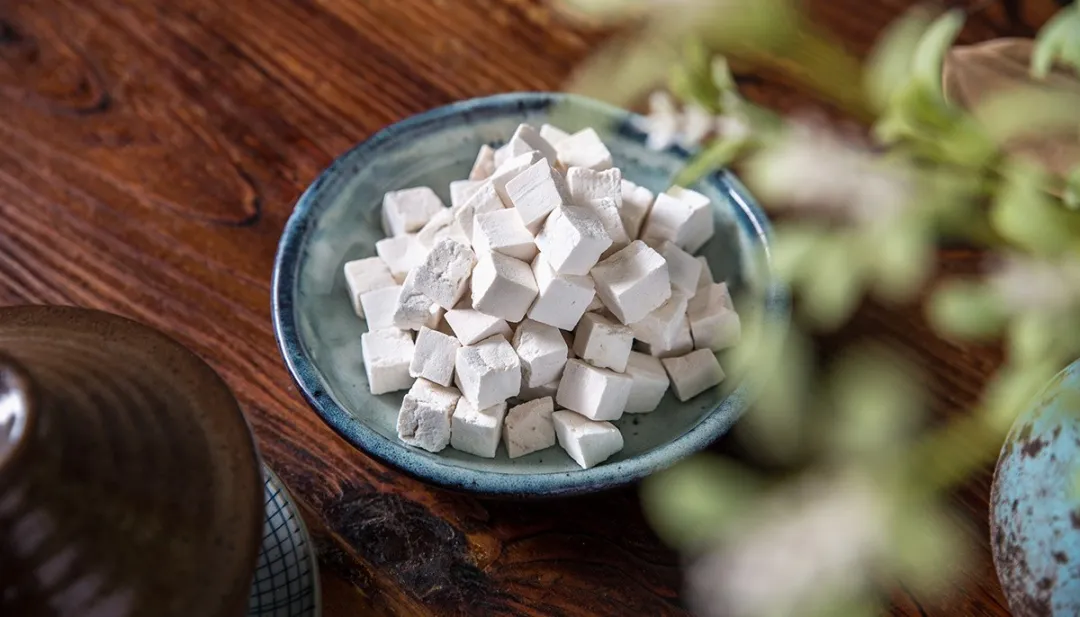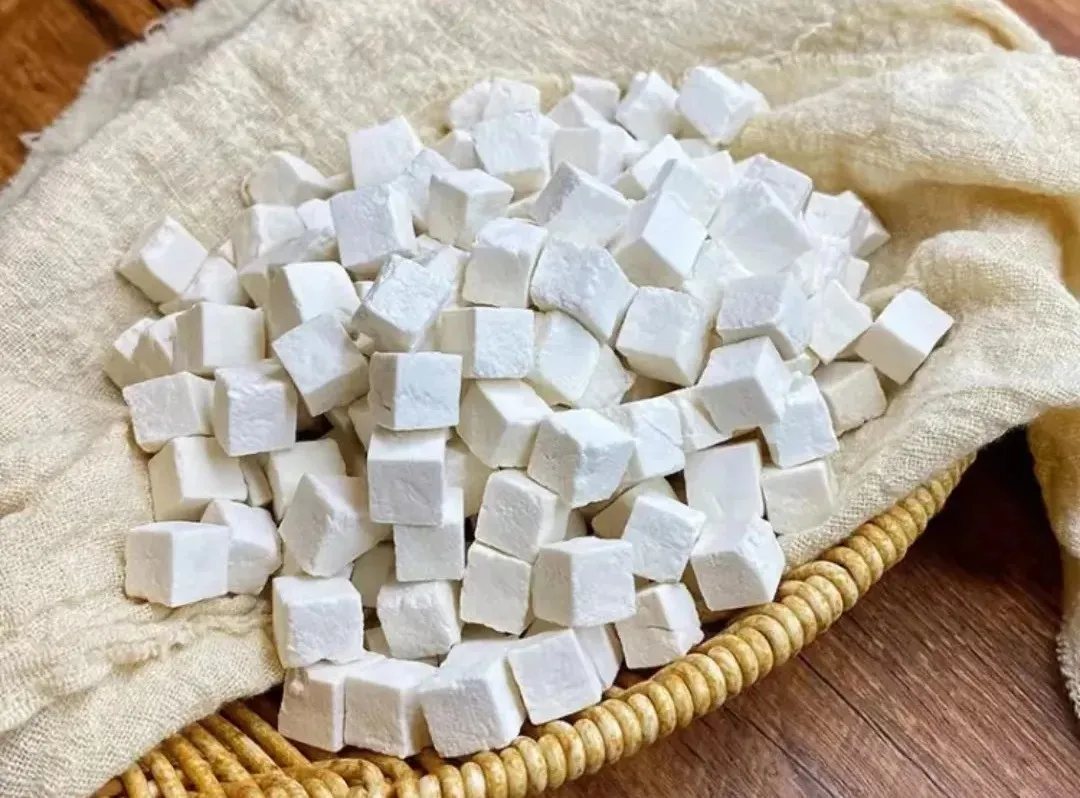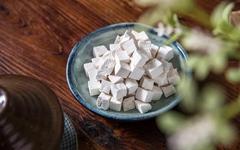Poria (Fu Ling)

Traditional Chinese Medicine


Introduction to Poria
Poria, known as Poria cocos (Schw.) Wolf, is the dried sclerotium of the fungus belonging to the family Polyporaceae. It is harvested from July to September, and after excavation, the soil and sand are removed. The sclerotia are then subjected to a process called “sweating” and spread out to dry until the surface is dry. This process is repeated several times until wrinkles appear and most of the internal moisture is lost, after which it is dried in the shade. This is referred to as “Fu Ling ge”; alternatively, fresh Poria can be cut into different parts and dried in the shade, known as “Fu Ling kuai” and “Fu Ling pian” respectively.

【Properties and Channels】Sweet, bland, neutral. Enters the Heart, Lung, Spleen, and Kidney meridians.
【Functions and Indications】Promotes urination and leaches out dampness, strengthens the Spleen, calms the mind. Used for edema, reduced urination, phlegm-dampness causing dizziness and palpitations, Spleen deficiency with poor appetite, loose stools, and anxiety or insomnia.
【Clinical Applications】
1、Edema and urinary difficulty
Poria is sweet and bland, promoting urination and leaching out dampness. Its properties are neutral, without strong cold or heat tendencies, making it effective for various types of edema, whether due to cold, heat, deficiency, or excess. It is often used in combination with other diuretic herbs, such as Wu Ling San (Five-Ingredient Powder), along with Zhu Ling (Polyporus), Ze Xie (Alisma), Bai Zhu (White Atractylodes), and Gui Zhi (Cinnamon Twig).For edema due to Spleen and Kidney Yang deficiency, it is best combined with warming diuretic herbs, such as Zhen Wu Tang (True Warrior Decoction), along with Fu Zi (Aconite) and Sheng Jiang (Fresh Ginger).For edema due to heat and dampness, with urinary difficulty, it can be combined with heat-clearing and yin-nourishing herbs, such as Zhu Ling Tang (Polyporus Decoction), along with Hua Shi (Talc), Zhu Ling, Ze Xie, and A Jiao (Donkey-hide Gel).
2、Phlegm-Damp Syndrome
Used for phlegm-dampness obstructing the chest and flanks, presenting with fullness in the chest and flanks, dizziness, palpitations, and shortness of breath. It is often combined with warming and phlegm-transforming herbs, such as Ling Gui Zhu Gan Tang (Poria, Cinnamon, Atractylodes, and Licorice Decoction), along with Gui Zhi, Bai Zhu, and Gan Cao (Licorice).For phlegm obstructing the stomach leading to vomiting, it is often combined with herbs that descend and stop vomiting, such as Xiao Ban Xia Jia Fu Ling Tang (Minor Pinellia Decoction with Poria), along with Ban Xia (Pinellia) and Sheng Jiang.
3、 Spleen Deficiency Syndrome
Used for Spleen and Stomach weakness, poor appetite, often combined with Qi-tonifying herbs, such as Si Jun Zi Tang (Four Gentlemen Decoction), along with Ren Shen (Ginseng), Bai Zhu, and Gan Cao. For Spleen deficiency with dampness leading to diarrhea, it is often combined with Qi-tonifying, Spleen-strengthening, dampness-eliminating, and diarrhea-stopping herbs, such as Shen Ling Bai Zhu San (Ginseng, Poria, and Atractylodes Powder), along with Ren Shen, Bai Zhu, Yi Yi Ren (Job’s Tears), Shan Yao (Chinese Yam), and Bai Bian Dou (White Hyacinth Bean).
4、Heart and Mind Disturbance Syndrome
Poria enters the Heart channel, benefiting the Heart and Spleen, calming the mind. It is used for palpitations, insomnia, and forgetfulness due to deficiency of both Heart and Spleen Qi and blood, often combined with Qi and blood tonifying and calming herbs, such as Gui Pi Tang (Restore the Spleen Decoction), along with Ren Shen, Huang Qi (Astragalus), Dang Gui (Angelica), and Yuan Zhi (Polygala). For insomnia due to deficiency of Heart Qi and fear, it can be combined with herbs that tonify Heart Qi and calm the mind, such as An Shen Ding Zhi Wan (Calm the Mind and Settle the Will Pill), along with Ren Shen, Yuan Zhi, and Long Chi (Dragon’s Teeth).
【Dosage and Administration】 Decoction, 10-15g (Chinese Pharmacopoeia).

 END
END
Source: Pharmacy Department Reviewed by: Information Department
(Some images sourced from the internet, please contact the author for removal if there are any copyright issues)


